DIRECTED BY: Sam Taylor
STARRING: Mary Pickford, Johnny Mack Brown, Matt Moore
WON: Best Actress in a Leading Role (Mary Pickford)
I have to admit, I really miss the 1st Academy Awards. There was the questionable win and nomination here and there, but for the most part the films were interesting and deserved the accolades they received.
However, it took merely a year for the Academy to fall into controversy. That year, the award for Best Actress was expected to go to Ruth Chatterton for her role in Madame X (a film I sadly haven't been able to find). Instead, it went to Mary Pickford for Coquette. Why the controversy? Two reasons:
1) Mary Pickford was arguable the most powerful woman in Hollywood at the time. She began starring in movies in the 1910s, starring in 52 of them overall. Her youthful appearance and trademark curly hair made her on of the biggest stars of the silent era. Some say there was a point where she was more famous then Chaplin. Appearances in public were known to cause riots. One of her curls sold for $15,000 in auction. She was a superstar.
And she used that superstar status to change the film industry from the inside. She became her own producer after three years of starring in films. Pickford's films were distributed through their own distribution unit. In 1919, she founded her own studio, United Artists, along with Chaplin, director D.W. Griffith and soon-to-be husband Douglas Fairbanks Sr. The company became a much-needed home for independent film producers at the time.
And most importantly, she was one of the founders of the Academy of Motion Picture Arts and Sciences, the group behind the Academy Awards. She was the only female member at the time, and even if Pickford HAD given the best performance that year, people would still have cried favoritism.
2) Mary Pickford did not give the best performance that year. Coquette is an awful, awful film.
This film is the first all-talkie picture reviewed on this site. While The Jazz Singer had a synced soundtrack, actual dialogue was reduced to a few songs and one brief monologue. This film is wall-to-wall conversations, and since microphones weren't mobile at the time, that meant everyone had to stay in the same area with little movement.
See this chair?
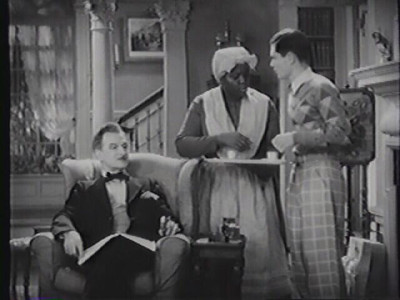
The microphone is somewhere around that chair, so most of the movie is people awkwardly standing around the chair chatting. That chair gets more screen time then any of the actors.
The film takes place in some Southern state, where a rich doctor deals with her teenage daughter Norma (Pickford was in her 30s at the time) and the suitors that come to her door. Yes, for the third time in the 2nd Academy Awards, we're dealing with a Rich Person Melodrama. Anyway, Norma shows interest in a poor man from the mountains, and her father won't hear of it, and tries to hook Norma up with his dull rich friend. EXCITING!
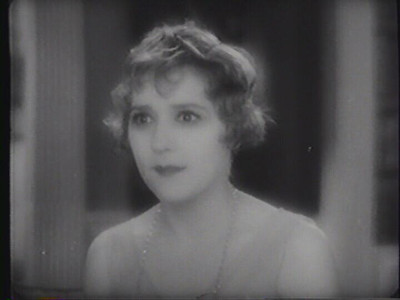
Again, Mary Pickford was almost twice the age of the character she was playing, and I guess she got it into her head that she had to exaggerate the youthful aspect of the character, and she really comes off annoying and fake. Remember, acting for silent films or for stage were different, and one had to be more subtle for sound films.
You know, here. Here's a seven-minute clip from the film to give you an idea of what I'm talking about:
"Ooh. Aren't they just.... adorable?"
The entire film is this. People standing in rooms, giving comically bad line readings and corny gestures. Mary Pickford is the queen of corny gestures.
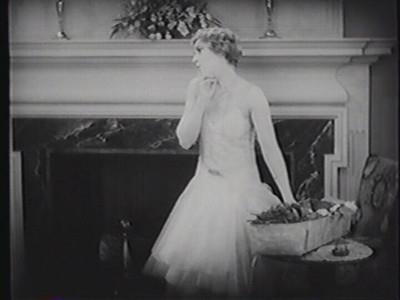
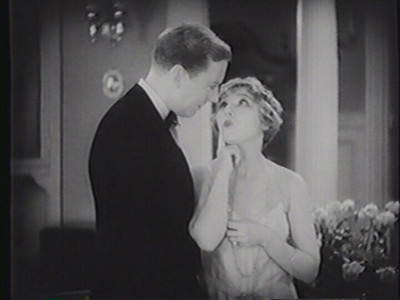
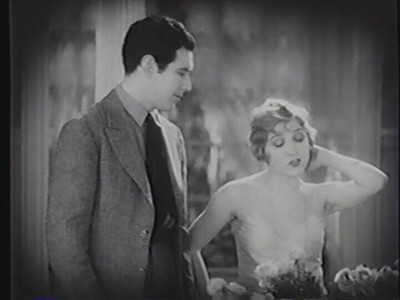
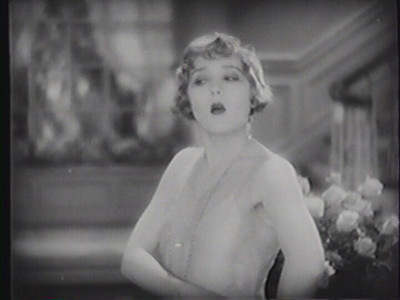
Coquette might as well be the flagship of the horrible films made at the beginning of the sound era. I should point out that I think Mary Pickford was a good silent actress, so it's not like she was untalented, but it's clear that sound was her undoing. The film was a critical failure and didn't make money, and Pickford quickly lost the fame she spent twenty years gaining. She only made two more films after this before retiring to the role of producer only.
But even with the troubles she had, I don't feel too forgiving. Her win in this category was pure politics. With sound destroying the industry and the Academy already patting itself on the back, it's clear just how dark of a time for movies it was.
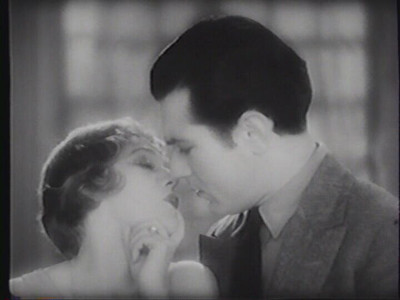
No comments:
Post a Comment